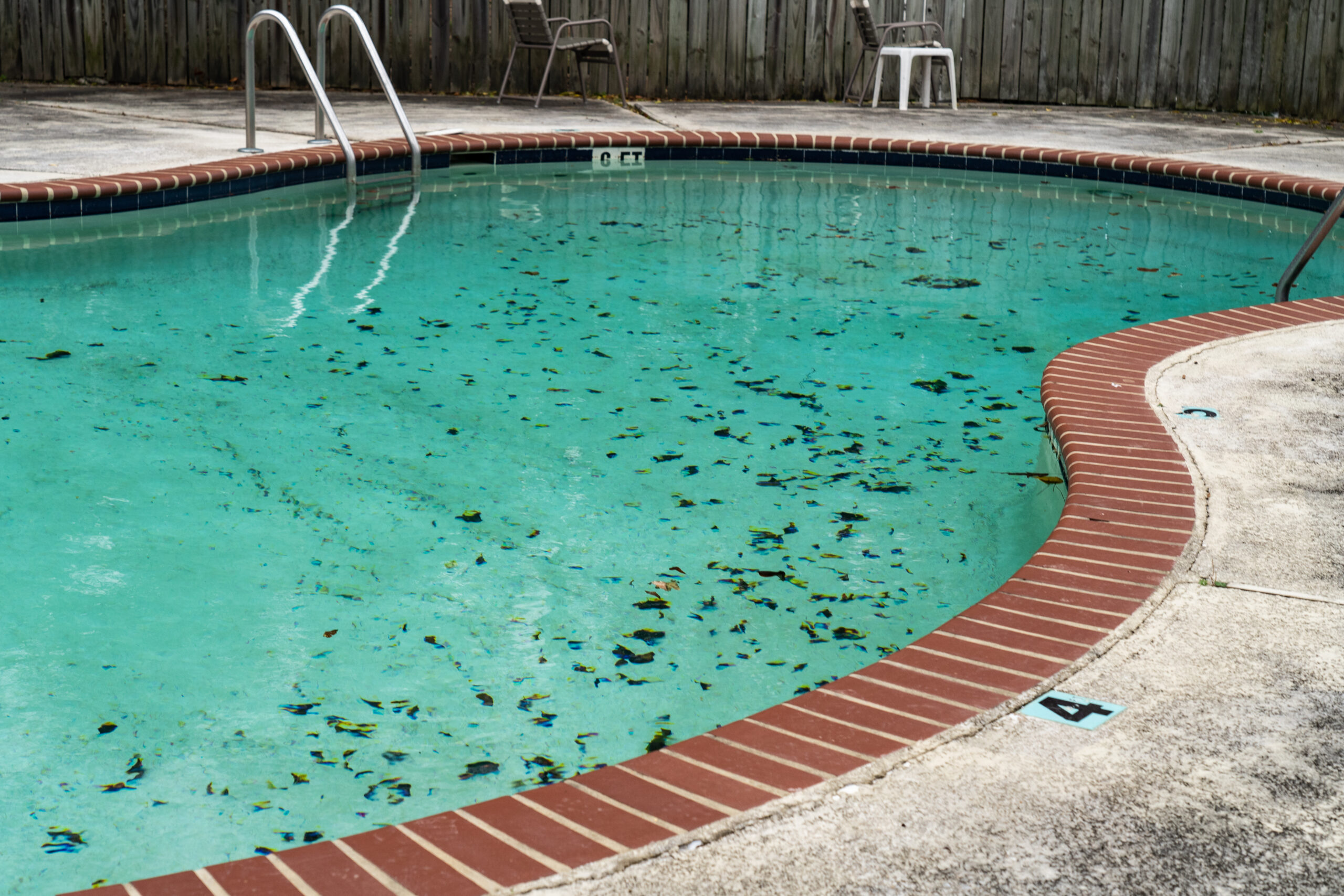Depending on where you live, your local winter conditions might necessitate closing your pool for several months per year and winterizing it to protect against harsh cold weather. We’ve written extensively about those instances where you have to close your pool for winter such as here, here and here.
Then again, you might live in an area where you don’t necessarily have to close the pool during winter and actually keep it running or at least don’t have to worry about freezing conditions. That’s what this article will concentrate on.
Run your pump and chlorinator only enough to keep chemicals mixed but keep in mind that chlorinators will shut off chlorine production when water temperature is 50º F – 65º F depending on the model. If you require chlorine when your chlorinator has shut off, you’ll need to add chemical chlorine instead.
You might only require the pump and chlorinator to operate for 3-4 hours per day to produce enough chlorine to keep algae at bay.
If you can’t operate the chlorinator because water temperature is too low? Keep reading for various scenarios because as temperature drops, less chlorine is required!
Why is chlorine required in a pool during the winter?
Salt water pools require less chlorine as water temperature drops. Algae can grow in your pool once the temperature goes above 50º F and will bloom by the time it hits 60º F so water temperature is key to determining chlorine requirements in winter.
Depending on your local weather conditions in winter, you might not even need any chlorine if the weather is cold enough based on the numbers discussed above.
If the water temperature fluctuates during the winter and you don’t actually close your pool, you’ll need to keep a close eye if and when you need chlorine based on when the water temperature goes above 50º F.
What do you do with a salt water pool in the winter?
If you need to winterize your pool, click here for some more information on the subject.
If you live in an environment that does not receive icy cold weather that requires you to winterize a pool, you might choose to keep the pool open and running, albeit at a reduced rate.
Some people run the chlorinator and pump for a few hours a day or just enough to keep the water and chemicals mixed and to produce some chlorine to keep algae at bay.
But if the temperature drops below the minimum operating temperature for your chlorinator, you may have to add chemical chlorine manually. Once the water temperature drops below 50º F algae won’t grow so you may not need any chlorine but might want to run the pump from time to time to keep water circulating a bit.
Major salt water generation system (chlorinator) manufacturers include Hayward, Jandy, Astral, Pentair, Ace, CircuPool and Zodiac and each model and brand may have its own minimum water temperature to ensure chlorine production remains active.
Do salt water pools need chlorine in the winter?
In the winter, the water temperature will drop and depending on where you live and how cold it gets, you may or may not need to winterize your pool. It’s important to know ahead of time if you live in a frigid winter zone that gets freezing temperatures to properly winterize pool plumbing to avoid damage from sub zero temperatures.
If your pool water falls under 50º F, algae won’t grow and your chlorine requirements will be minimal if any. Over 50º F however and algae can start to grow in which case some chlorine will be necessary.
Once the temperature in the water hits 60º F, algae can bloom and you’ll definitely notice this if there is no chlorine present in the pool.
This is why it’s also important to not open your pool too late in the spring especially if it has a pool cover since the warm temperatures are a great environment for green algae.
What sort of chlorine should you use in winter?
The form of chlorine you use during the winter depends on whether or not the pump and chlorinator is running. If the water temperature is high enough, you may choose to run the chlorinator and allow it to produce chlorine with the pump running of course.
If the water temperature is too low to operate the chlorinator but you have access to the pump, you may use shock, crystal chlorine, liquid or pucks with the pump running.
But if the pump isn’t running your likely only option is liquid chlorine since it will at least mix with the water whereas the other options require the pump to be operational to properly mix and disperse.
Mind you if you have the pump shut down, you may also be at a low enough water temperature that you don’t require chlorine in the water at that time.
Lots of scenarios, but it really does depend on your local weather conditions!

